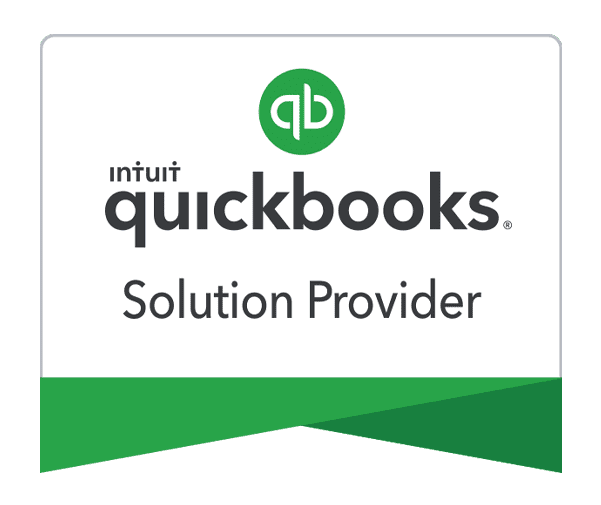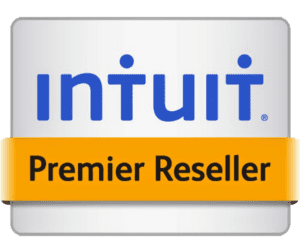Just register for the free trial below and we will send you everything you need to evaluate QuickBooks Enterprise including 30-day access, sample company files, and the full 88-page QuickBooks Enterprise Guide that details everything that you can do in the software. Free end-to-end consultation and support are included so if you need any help along the way, just let us know!

Paygration, Inc.
QuickBooks Enterprise is a powerful accounting solution tailored to meet the unique needs of contractors. Whether you specialize in construction, remodeling, or any other contracting business, QuickBooks Enterprise offers a wide range of features designed to streamline your financial management processes and improve efficiency. Here are the top 14 reasons why QuickBooks Enterprise is ideal for contractors:
1. Job Costing
QuickBooks Enterprise provides robust job costing tools that allow contractors to track expenses, labor costs, and revenue associated with each project. By accurately allocating costs to specific jobs, contractors can monitor profitability, identify areas for improvement, and make informed decisions to ensure project success. With customizable job costing reports, contractors can analyze project performance in real-time and adjust strategies as needed to maximize profitability.
Learn more about job costing in QuickBooks Enterprise.
2. Advanced Reporting
QuickBooks Enterprise offers advanced reporting capabilities that provide contractors with valuable insights into their business performance. Contractors can generate custom reports to track key metrics such as job profitability, project expenses, and labor costs. These reports allow contractors to identify trends, forecast future revenue, and make data-driven decisions to optimize business operations. With QuickBooks Enterprise, contractors can access comprehensive financial reports that provide a clear picture of their business’s financial health, enabling them to make informed decisions and drive growth.
Explore the top 10 most popular reports in QuickBooks Enterprise.
3. Progress Invoicing
QuickBooks Enterprise allows contractors to create progress invoices based on the percentage of completion or milestones reached in a project. This feature is particularly useful for contractors who work on long-term projects or projects with multiple phases. By invoicing clients for work completed to date, contractors can improve cash flow and maintain better control over project finances. Progress invoicing in QuickBooks Enterprise streamlines the billing process and helps contractors get paid faster.
4. Retainage Tracking
Contractors often deal with retainage, where a portion of their invoice is held back until the project is completed to ensure satisfactory work. QuickBooks Enterprise includes features for tracking retainage, allowing contractors to monitor retainage amounts for each project and ensure timely payment upon project completion. With retainage tracking, contractors can accurately account for withheld funds, reconcile retainage receivable accounts, and streamline the process of releasing retainage once project milestones are met.
5. Subcontractor Management
QuickBooks Enterprise enables contractors to efficiently manage subcontractors by tracking subcontractor costs, payments, and compliance documents. Contractors can easily create purchase orders for subcontracted work, track expenses, and manage subcontractor billing. With features for managing subcontractor contracts and agreements, contractors can ensure compliance with legal and regulatory requirements, reducing the risk of disputes and legal issues.
If you would like to try the full version of QuickBooks Enterprise Desktop, click here to get a free, 30-day no-commitment trial plus access to the Resource Guide that lists all the features available in Enterprise.
6. Change Order Management
Change orders are a common occurrence in the construction industry and can significantly impact project timelines and budgets. QuickBooks Enterprise includes tools for managing change orders, allowing contractors to document changes to project scope, timelines, and costs. Contractors can create change orders directly within QuickBooks Enterprise, track changes to project budgets, and communicate changes to clients and subcontractors. With change order management, contractors can effectively manage project scope changes, mitigate risks, and maintain profitability.
7. Job Costing by Phase
QuickBooks Enterprise allows contractors to track job costs by phase or stage of a project, providing detailed insights into the costs associated with each phase of a project. Contractors can allocate expenses, labor costs, and materials to specific project phases, enabling them to monitor progress, identify cost overruns, and make adjustments as needed. Job costing by phase helps contractors better understand the financial impact of each stage of a project and make informed decisions to optimize project efficiency and profitability.
8. Budget vs. Actual Reporting
QuickBooks Enterprise offers budget vs. actual reporting, allowing contractors to compare budgeted costs with actual expenses for each project. Contractors can create budgets for projects based on estimated costs and revenue, then track actual expenses against budgeted amounts in real-time. This feature enables contractors to identify budget variances, analyze cost overruns, and make adjustments to stay on track. With budget vs. actual reporting, contractors can better manage project finances, improve cost control, and maximize profitability.
9. Advanced Inventory Management
QuickBooks Enterprise includes advanced inventory management features that are beneficial for contractors who need to track inventory for projects. Contractors can manage inventory across multiple locations, track stock levels, and create purchase orders for materials and supplies. With features such as serial number and lot tracking, contractors can accurately trace inventory items and ensure compliance with regulations. Advanced inventory management in QuickBooks Enterprise helps contractors streamline inventory operations, reduce costs, and improve project efficiency.
Discover the top inventory features in QuickBooks Enterprise.
10. Time & Expense Tracking
QuickBooks Enterprise offers robust time and expense tracking features that allow contractors to capture billable hours and expenses for projects accurately. Contractors can track employee time, subcontractor hours, and reimbursable expenses directly within QuickBooks Enterprise. With features for entering timesheets, tracking billable hours, and capturing expenses on the go, contractors can ensure accurate invoicing and improve project profitability. Time and expense tracking in QuickBooks Enterprise helps contractors streamline billing processes, reduce errors, and increase revenue.
11. Equipment Costing
Contractors often use equipment and machinery on projects, and QuickBooks Enterprise includes features for tracking equipment costs and depreciation. Contractors can allocate equipment costs to specific projects, track equipment usage, and calculate depreciation over time. With equipment costing in QuickBooks Enterprise, contractors can accurately account for equipment expenses, monitor equipment profitability, and make informed decisions about equipment investments. Equipment costing helps contractors optimize equipment utilization, reduce costs, and improve project efficiency.
12. Document Attachment
QuickBooks Enterprise allows contractors to attach documents directly to transactions, invoices, and projects, providing easy access to important project-related documents. Contractors can attach contracts, invoices, receipts, and other documents to transactions, ensuring that all relevant information is easily accessible. With document attachment in QuickBooks Enterprise, contractors can streamline document management, reduce paperwork, and improve collaboration with clients and subcontractors. Document attachment helps contractors stay organized, reduce administrative overhead, and ensure compliance with document retention policies.
13. Sales Order Fulfillment
QuickBooks Enterprise includes features for managing sales orders and order fulfillment, streamlining the process of fulfilling customer orders. Contractors can create sales orders, track order status, and manage inventory allocations directly within QuickBooks Enterprise. With sales order fulfillment, contractors can ensure timely delivery of products and services to customers, improve customer satisfaction, and streamline order management processes.
14. Custom Fields and Forms
QuickBooks Enterprise allows contractors to create custom fields and forms to capture additional information relevant to their business. Contractors can customize invoices, purchase orders, and other forms to include specific fields, ensuring that all necessary information is captured accurately. With custom fields and forms, contractors can tailor QuickBooks Enterprise to their unique business needs, streamline data entry, and improve accuracy.
Conclusion
QuickBooks Enterprise is the ideal accounting solution for contractors, offering a wide range of features specifically designed to meet the unique needs of the construction industry. From job costing and progress invoicing to advanced inventory management and document attachment, QuickBooks Enterprise provides contractors with the tools they need to streamline financial management processes, improve efficiency, and maximize profitability.
If you’re a contractor looking to streamline your accounting processes and improve efficiency, contact us for a free consultation. Our team of experts will help you explore the features of QuickBooks Enterprise and determine how it can benefit your business. Call us today at 866-949-7267 to schedule your free consultation.
















